ICJ ruling on Israeli occupation of Palestine a significant milestone: Legal expert
By Alireza Hashemi
The International Court of Justice’s (ICJ) ruling declaring Israel's occupation of Palestinian territories illegal marks a significant milestone as it provides a clear legal framework for addressing the decades-long occupation, says a US-based legal analyst.
Susan Akram, the director of the International Human Rights Clinic at the Boston University School of Law, in an interview with the Press TV website, said the ICJ ruling is groundbreaking as it sets a new precedent in international law by underscoring the illegality of the occupation itself.
She urged the global community to act upon the ruling as it is a legal and moral obligation to ensure justice and self-determination of the Palestinian people.
“The Court's ruling that Israel's occupation itself is illegal is extremely significant because until now UN Resolutions and opinions from the various human rights bodies have found that many aspects of Israel's treatment of Palestinians in the Occupied Palestinian territories are illegal, but not that the occupation itself is illegal,” she stressed.
The law professor noted that the law of occupation, primarily outlined in the Fourth Geneva Convention of 1949, regulates the conduct of an occupying power but does not prohibit occupation per se.
It assumes occupation is temporary during armed conflicts and restricts the occupier's actions. Importantly, occupation does not grant sovereignty to the occupying power.
“The ICJ found that aside from the length of time of the Israeli occupation—57 years--the legal and non-legal measures Israel has implemented in the OPT and East Jerusalem (Al-Quds) have converted its occupation into annexation,” she stated.
“The ICJ equates annexation to aggression, which is absolutely prohibited by the UN Charter and customary international law. There are many other groundbreaking aspects of the Court's opinion, but this is the main underlying ruling that makes the opinion so significant.”
Hammer blow to Israel: ICJ ruling against Israel mandates Palestinian return to 1967 lands pic.twitter.com/J2ihdrY1pX
— Press TV 🔻 (@PressTV) July 20, 2024
‘A call for global action against occupation’
Akram stressed that ICJ's advisory opinion is binding on all UN member states.
“The ICJ is the Court of the United Nations, mandated to decide disputes between member states and to decide questions of international law put to it by the UN bodies. As such, its advisory opinions are binding on all UN member states as they must follow its legal interpretations.”
The law professor said the UN General Assembly and UN Security Council must implement measures to end the occupation and cease cooperation with Israel related to the occupation, among others.
“The UN General Assembly and Security Council are required to take the steps necessary to implement the opinions and, as appropriate, the contentious decisions of the Court. It is now up to these two bodies to follow up on the Court's opinion and take all measures this ruling suggests to carry it forward.”
She said the ICJ ruling has made clear that its findings on the illegality of the Israeli occupation of Palestine impose obligations on all states to implement them.
This includes ceasing cooperation with Israel in any form that supports the occupation.
“In this regard, the ICJ made clear that its findings on the illegality of the occupation and other key issues raise obligations erga omnes, which means that all states must take steps to implement them. The Court stated that such measures include that all states must cease cooperation with Israel in any way that supports the occupation--whether economic, military or diplomatic ties connected to Israel's occupation activities,” Akram said, adding that the ICJ also mandated that the UN take measures to end the occupation, remove settlements, ensure Palestinian self-determination, and facilitate the return of Palestinians to their homes, along with restitution and reparations for ongoing violations.
She further said that while the verdict will not immediately change the situation on the ground, it provides a robust legal foundation for UN member states to act upon.
“For the Palestinians, it is a watershed decision, setting out in no uncertain terms that Israel must end its occupation immediately, remove all of its settlers and settlement activities in all of the OPT, repeal all of its discriminatory residency/citizenship, housing, and criminal laws that the court equated with apartheid,” Akram asserted.
“The decision has put an end to many of Israel's defenses for its occupation. It found that the Oslo agreements, security measures, the construction of the Wall, and all of Israel's claimed justifications for prolonging and deepening the occupation are unsubstantiated.”
The law professor at Boston University said the Palestinian leadership (PLO) can leverage this decision to cut ties with Israel and seek support from friendly states to implement the ICJ decision.
“Palestinian leadership should now be able to rely on this decision to terminate all cooperation with Israel of any kind. Palestinians will need to put forward a program to friendly states with specific requests for them to take a series of measures to implement the Court's decisions from terminating all arms trades to placing sanctions and visa restrictions on Israeli leaders and settlers,” she stated.
✍️Viewpoint - Free Palestine: ICJ ruling recognizes the colonial nature of Zionist entity
— Press TV 🔻 (@PressTV) July 21, 2024
By @decolonialmost1 https://t.co/TXA9d95X23
‘UNSC obstacle to implementation of ruling’
On what could block the implementation of the ruling, Akram said the primary obstacle to implementing the ICJ decision is likely the UN Security Council, where the US has historically supported Israel.
“Unfortunately, the UNSC is likely to be the primary obstacle to implementing the ICJ decision, as the US has proved to support Israel almost unconditionally in that body. Since it is the Security Council that has the authority to order armed intervention under the Charter, that is not likely to happen,” she said.
Without UNSC action, the UN General Assembly is expected to draft a resolution to follow up on the ICJ’s decision and recommend bilateral actions by member states to ensure implementation.
“The General Assembly is likely to draft a resolution fairly soon to follow up on the Court's decision, and can recommend to member states what they should do bilaterally in their relations with Israel and Palestine to ensure the decision is implemented,” Akram remarked.
The professor said the UNGA can propose immediate, medium, and long-term measures similar to those enacted against South Africa's apartheid regime, which was instrumental in ending apartheid.
“It was the ICJ's several advisory opinions in the South Africa situation that legalized the sanctions regime against South Africa and helped bring about the end of apartheid.”
‘ICJ ruling support other anti-Israel legal efforts’
The law professor and legal analyst said the ICJ advisory opinion provides additional legal support for the International Criminal Court (ICC) to issue arrest warrants against Israeli regime officials.
“Aggression, like genocide and crimes against humanity, is one of the 'supreme' international crimes for which prosecutions should be initiated. So far, the ICC Prosecutor has not included aggression in the grounds for the warrants he has requested against Israeli leaders, but that could change with the issuance of this decision.”
Akram said the ruling also boosts numerous other legal actions that are being pursued globally to address the issue of Palestinian rights and Israeli occupation.
“There are many, many legal actions being pursued in various countries around the world. Domestic lawsuits have been brought against states' leaders as well as corporations engaging in arms, technology, and other trade with Israel for complicity with genocide in Gaza in the US, the Netherlands, Norway, and Spain, among others,” she stated.
“Sanctions have been issued against settler groups, settler leaders, and units of the IDF under the Global Magnitsky Act and related laws in several countries. At least two countries have already issued warrants for the arrests of Israeli principals.”
The professor said pro-Palestine acts of protests around the world are also likely gaining traction from the ICJ decision.
“Of course, civil society protest activities and demonstrations are continuing in many countries around the world, and these are likely to gain traction from the ICJ decision. All countries that have ties with Israel and actively engage in Israel's settlement project are likely to face much more pressure from their citizens based on the ICJ decision.”
VIDEO | Fighting British state
Hamas hails reopening of Rafah crossing as big gain
Bedouin village in West Bank fully emptied due to Israeli settler violence
VIDEO | Iraqi Parliament fails again to elect president amid Kurdish deadlock
VIDEO | An oil deal for India? Trump’s claim meets silence and backlash
VIDEO | Yemen scholars rally behind Iran, call for Islamic mobilization
One person killed in Israeli strike on southern Lebanon
'ICE out': Protests against immigration crackdown spreads across US


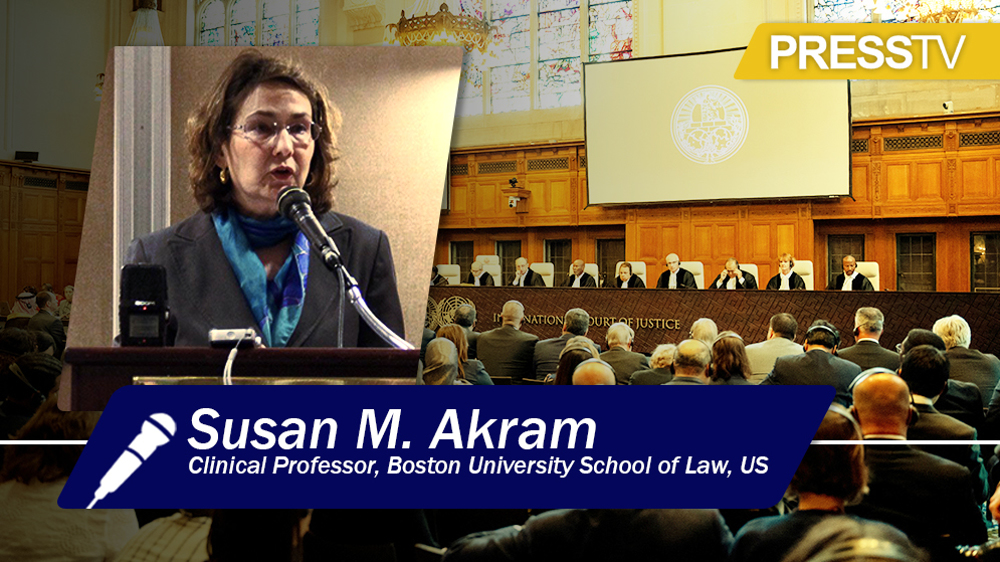
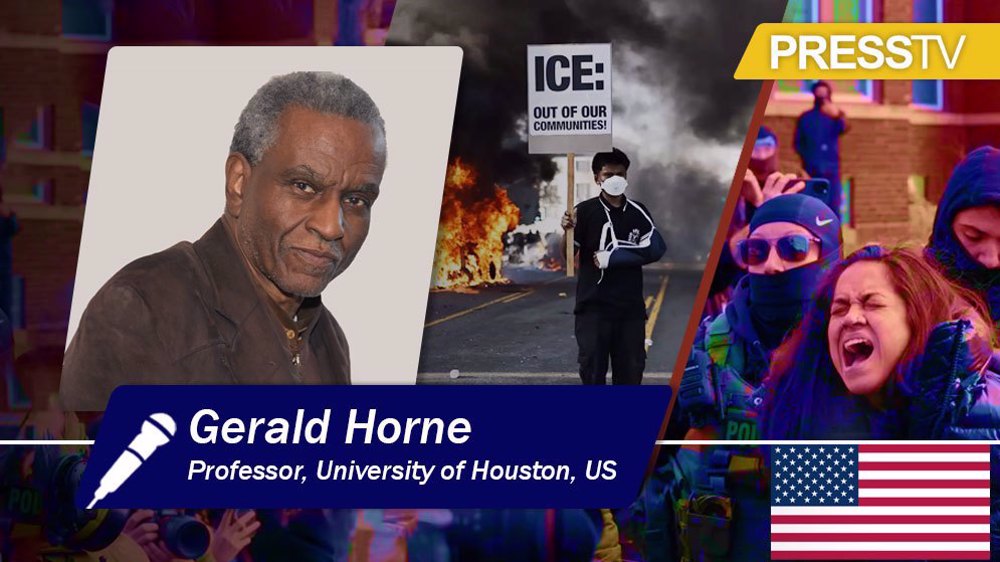





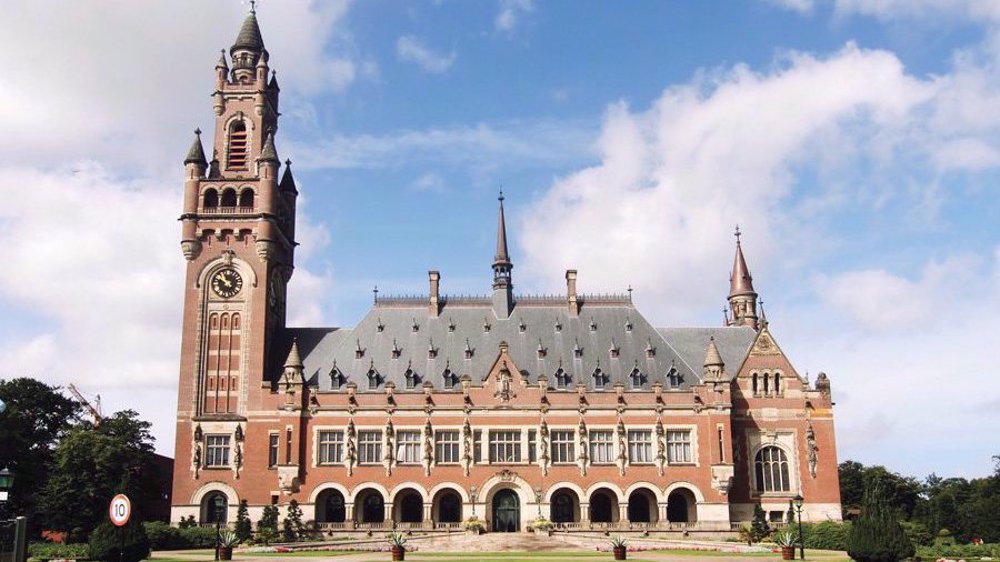

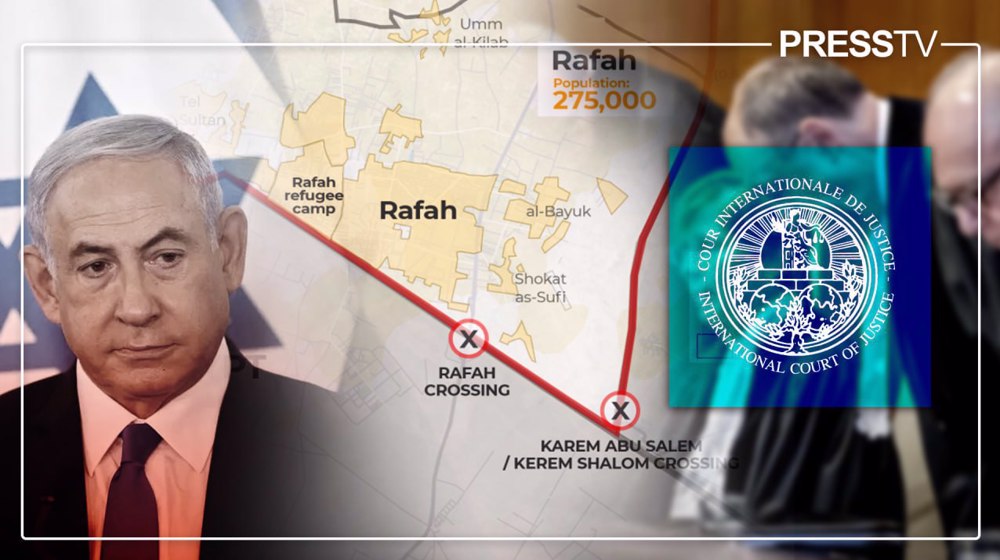
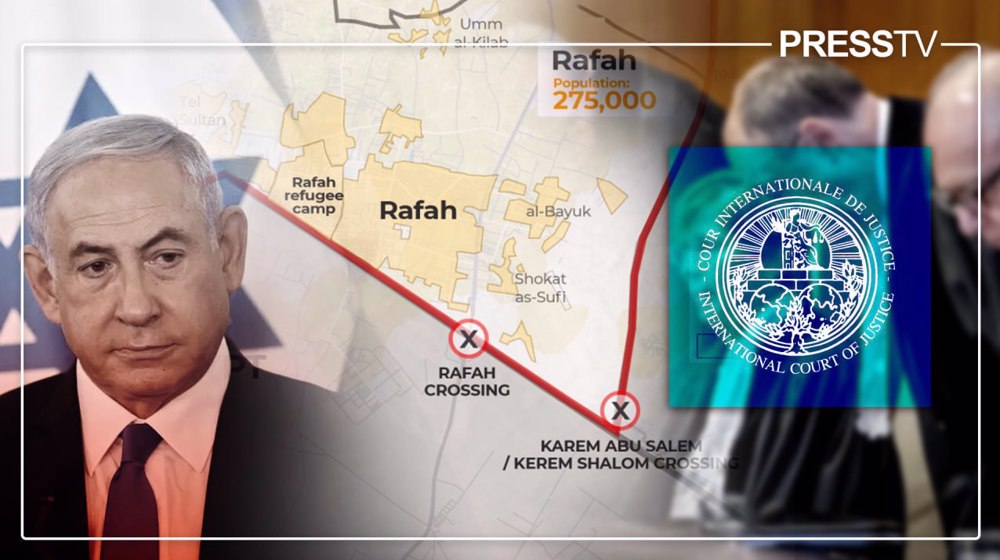


 This makes it easy to access the Press TV website
This makes it easy to access the Press TV website